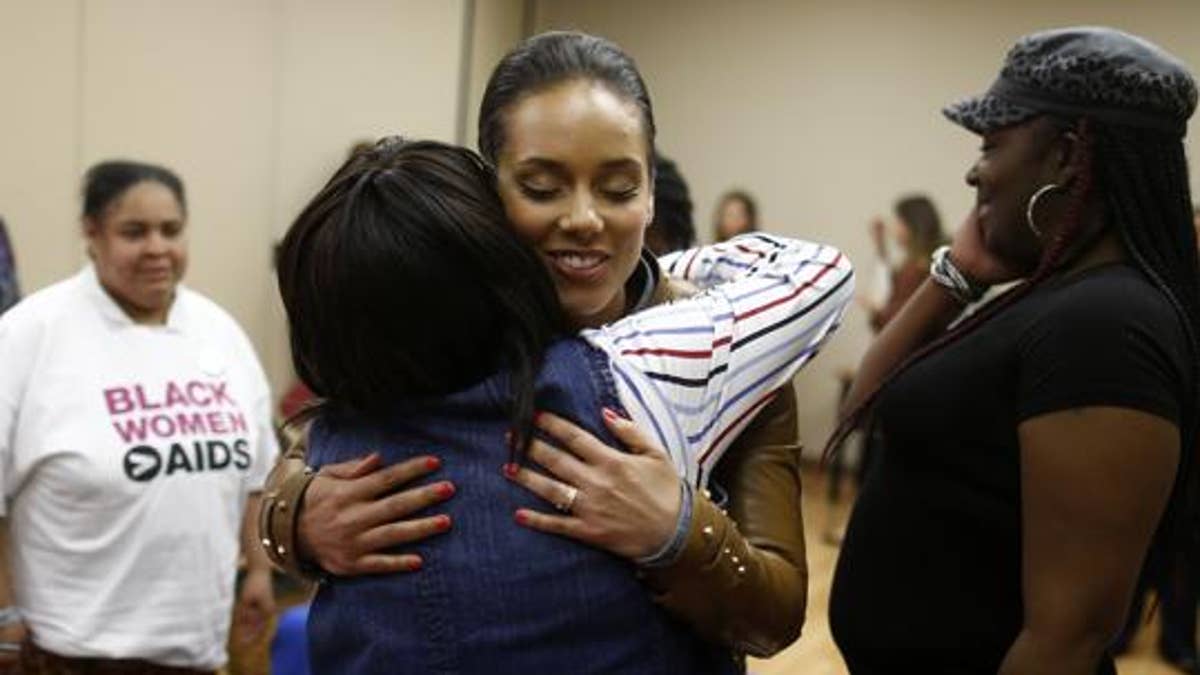
Grammy Award-winning singer Alicia Keys hugs HIV positive woman as she visits an HIV women's support group at United Medical Center in Washington, Monday, April 15, 2013. (AP Photo/Charles Dharapak)
WASHINGTON – Alicia Keys says she wants to spark a global conversation about HIV, the virus that causes AIDS.
The Grammy Award-winning singer met with women who are part of an HIV program at United Medical Center in the nation’s capital Monday to discuss their experiences with the virus, including the fear and stigma associated with the disease.
Keys, who has also traveled to Africa and India to meet with women who have HIV, said she felt connected to the women there and here because ‘‘they looked like they could be my sister, or they could be my aunt, or they could be my cousin.’’
And now, she said, she wants to ‘‘bridge’’ the gap between domestic and international conversations about the virus.
Keys is working with the Kaiser Family Foundation for ‘‘Empowered,’’ a campaign launched last month to educate women about HIV and provide grants to community-based projects that will do that.
According to Kaiser, one in four of the 1.1 million people living with HIV in the United States are women. Women of color account for about two-thirds of new HIV infections among women.
‘‘Black women are disproportionally affected, making up for the majority of all new infections,’’ Keys said. ‘‘That’s a must-have conversation.’’
The campaign includes outreach through public service ads, social media and community programs. It encourages women to learn about HIV and AIDS, talk with family and friends, protect themselves and loved ones, get tested, prevent spreading the disease and stay on treatment.
Keys is also leading the Empowered Community Grants program with Kaiser and AIDS United that will give up to $25,000 grants to community-level projects that focus on women and HIV.
‘‘To identify those community-based organizations is a very important part of the puzzle,’’ Keys said.
Valerie Jarrett, a White House senior advisor who has worked with Keys in the past on women and health issues, said she supports ‘‘Empowered’’ because it is part of President Barack Obama’s vision for comprehensive health.
‘‘You really have to have a holistic and comprehensive approach to this and what’s so special about what Alicia is doing now is that it will highlight how every single person can play a role in this,’’ Jarrett said.
The campaign is scheduled to run for five years and publish a report annually on women’s experiences with HIV and AIDS and examine cultural changes regarding education, misconceptions and the stigma associated with the disease.
Keys has been an advocate for lesser served countries for more than a decade. She is co-founder of Keep a Child Alive, which provides AIDS treatment, food and other support to children and families affected by HIV and AIDS in Africa and India.








































